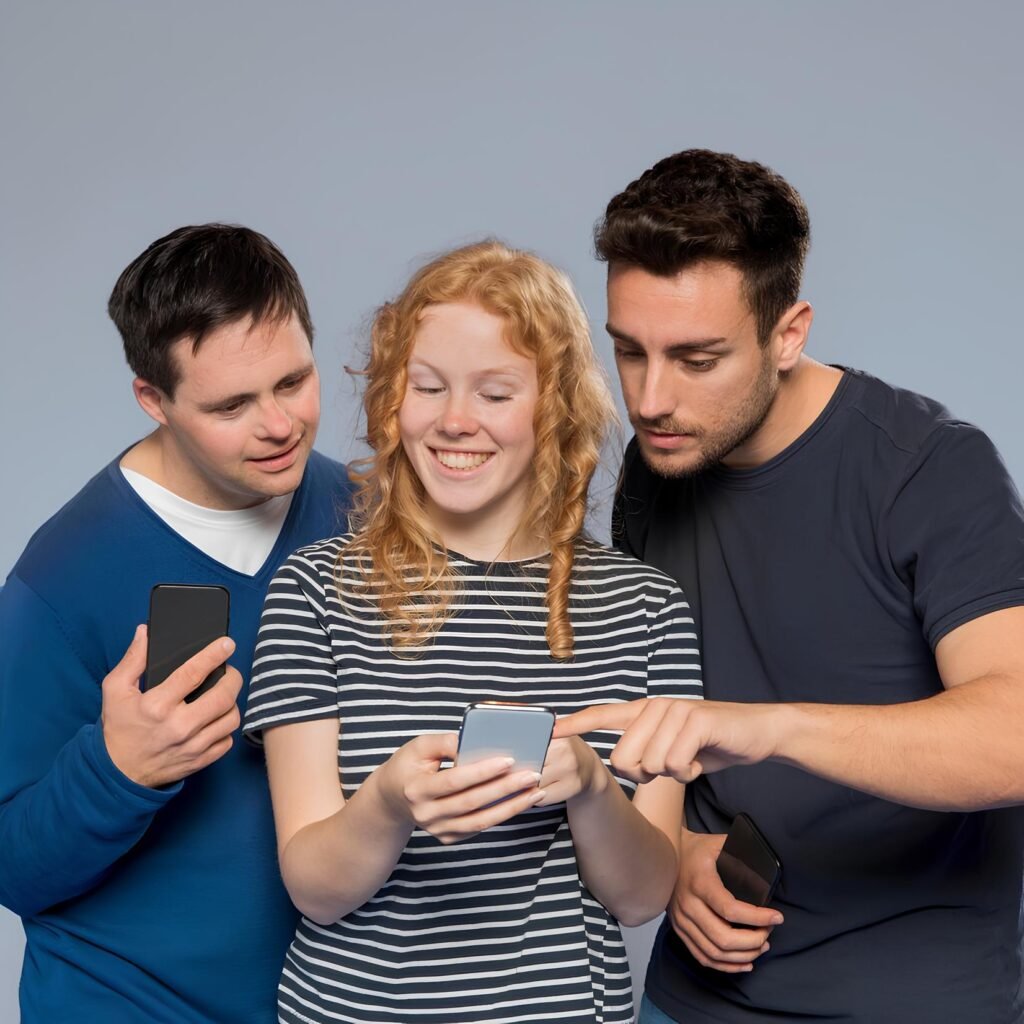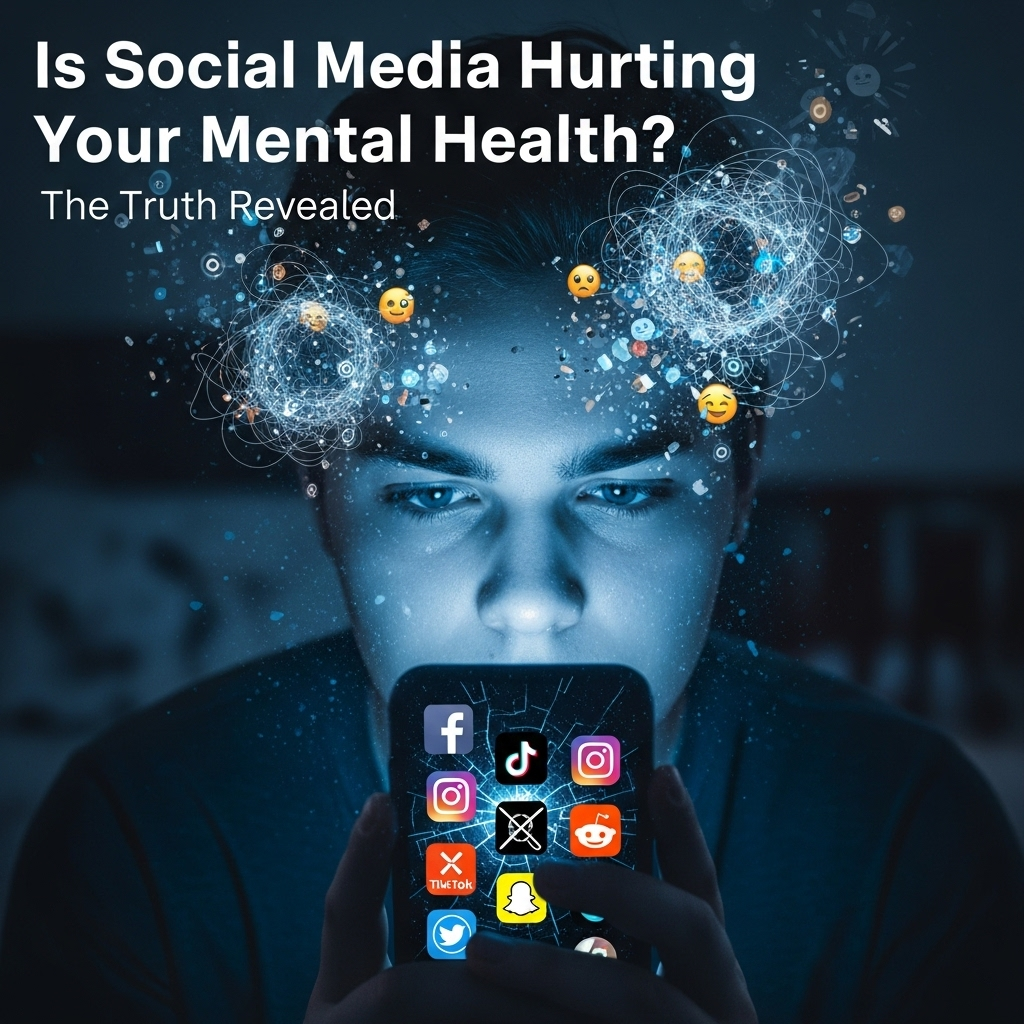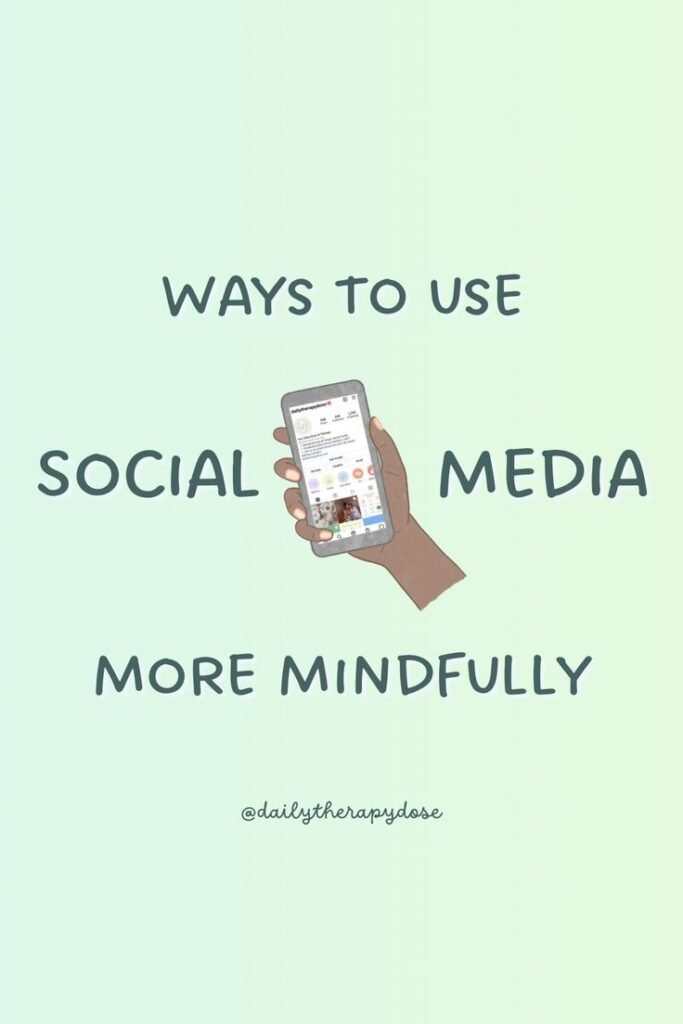Social media has become a big part of our lives, helping us stay connected, share moments, and even work. However, while it offers many benefits, it’s also important to understand how it can affect our mental health. In this blog, we’ll explore the truth about social media’s impact on your well-being and provide tips on managing it for a healthier life.
The Pros of Social Media
Before we dive into the risks, it’s important to recognize the positive sides of social media.
1. Staying Connected
Social media helps people stay in touch with family and friends, especially if they’re far away.
2. Building Communities
It allows individuals to connect with others with similar interests, forming support networks.
3. Access to Information
From health tips to the latest news, social media makes it easy to stay informed.

How Social Media Can Harm Mental Health?
While social media has its perks, several drawbacks can harm mental health.
1. Increased Anxiety and Depression
Studies have shown that heavy use of social media can contribute to feelings of anxiety and depression. Constant exposure to the perfect lives of others can lead to unrealistic comparisons.
2. Fear of Missing Out (FOMO)
Social media often shows only the highlights of people’s lives, making you feel like you’re missing out or not measuring up. This can trigger loneliness and lower self-esteem.
3. Sleep Disruptions
Spending time on social media late at night can interfere with your sleep schedule. The blue light emitted from screens can also disrupt your natural sleep cycle, leading to poor sleep quality.
4. Addiction and Overuse
Social media platforms are designed to keep you engaged, and it’s easy to fall into the trap of spending hours scrolling through your feed. Overuse can lead to digital addiction, contributing to stress, eye strain, and mental exhaustion.

How to Use Social Media Mindfully
While it’s clear that social media can have negative effects, it’s not all bad. Here are some ways to use social media more mindfully and protect your mental health.
1. Limit Your Screen Time
Set boundaries for yourself by limiting social media use to specific times of the day. Using apps that track and manage screen time can help you stay in control.
2. Follow Positive Accounts
Curate your feed with accounts that inspire and uplift you, rather than those that cause negative feelings.
3. Take Regular Breaks
It’s essential to take breaks from social media. Step away from your phone and enjoy some offline time—whether it’s spending time with loved ones, reading, or engaging in a hobby.
4. Engage in Meaningful Conversations
Rather than mindlessly scrolling, use social media to engage in thoughtful conversations and learn new things.
Conclusion: Striking the Balance Between Online and Offline Life
Social media isn’t inherently bad, but how you use it matters. While it can be a valuable tool for staying connected and informed, it’s important to be mindful of its impact on your mental health. By setting limits, choosing positive content, and taking regular breaks, you can enjoy the benefits of social media without it negatively affecting your well-being.
Remember, your mental health comes first. Finding a healthy balance between online and offline life is key to feeling your best.







